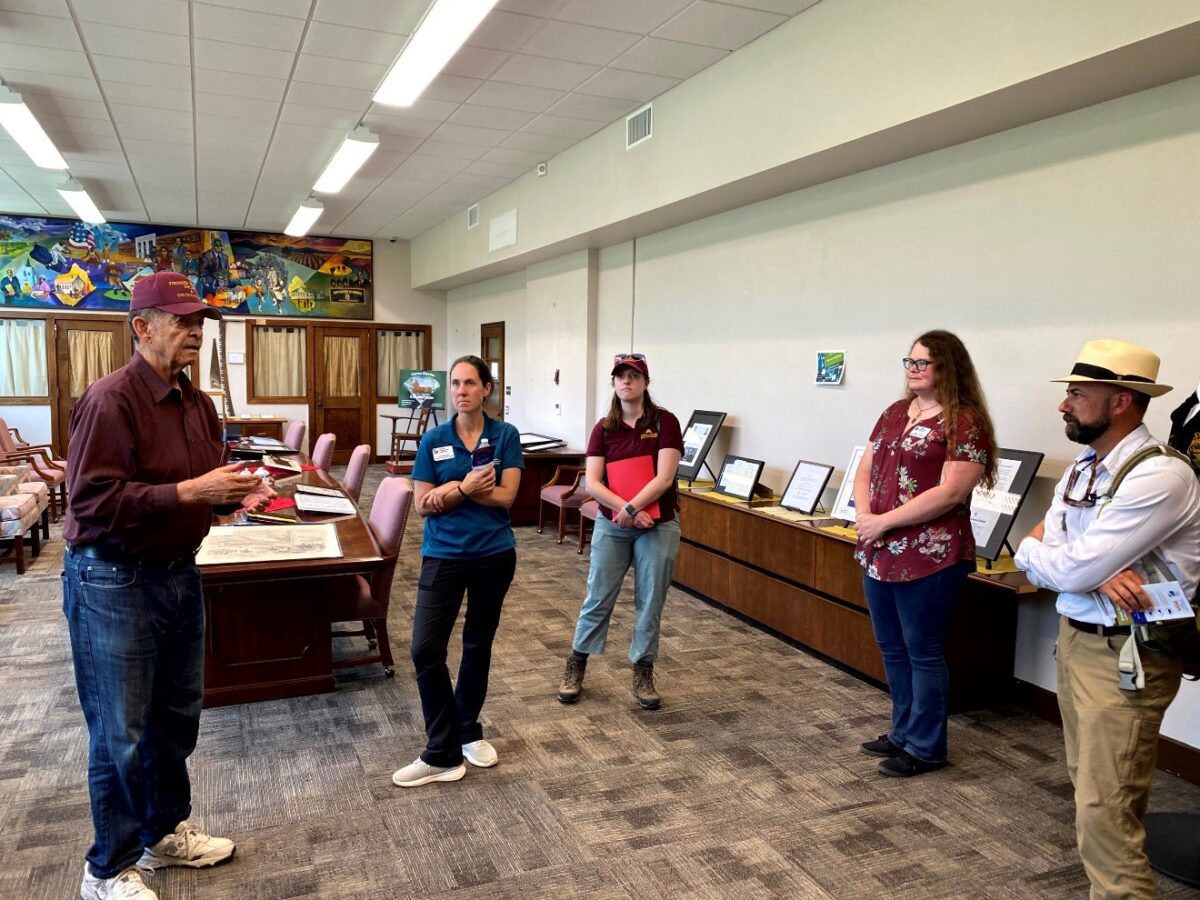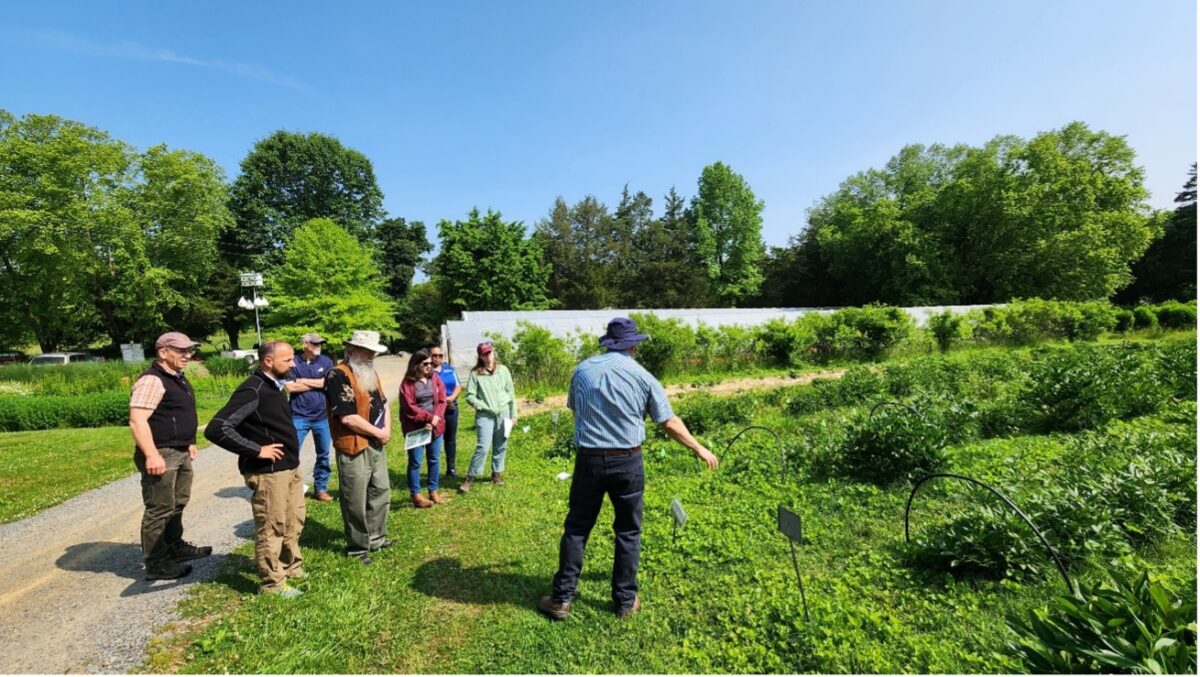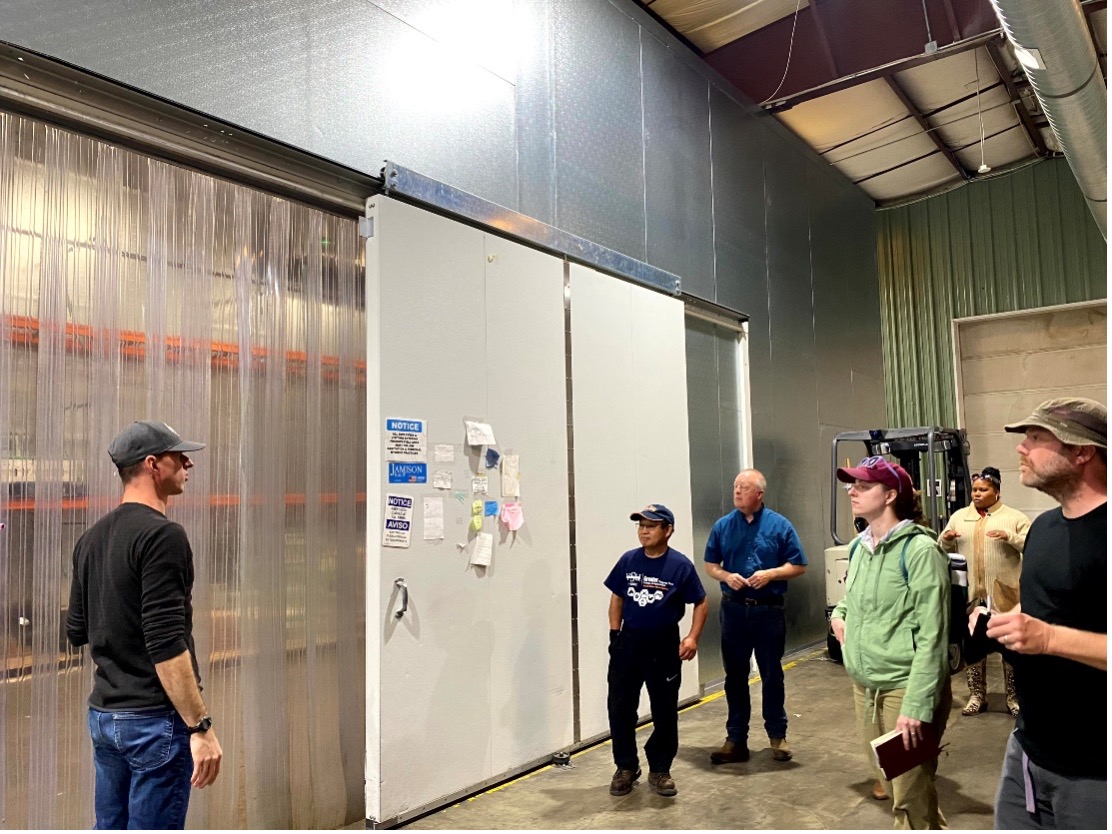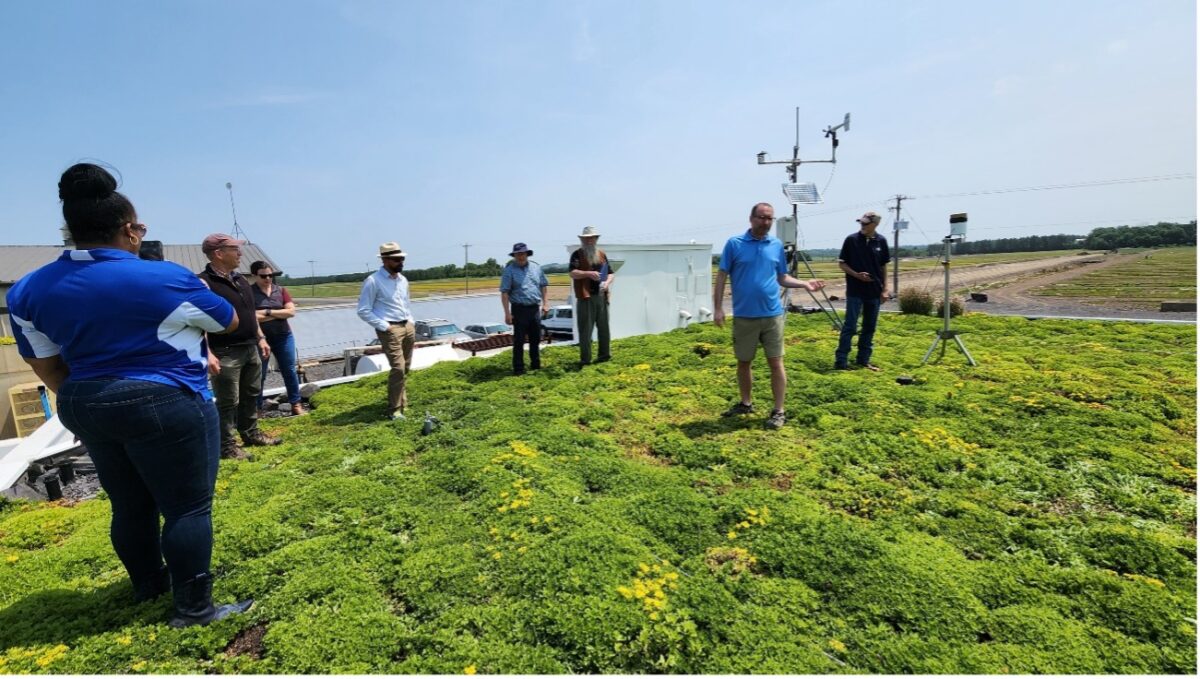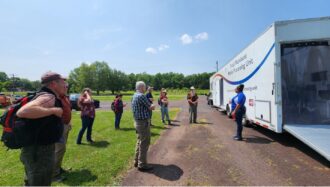The sustainability of farms and food-related businesses can be affected by many agricultural, social, ecological, financial, and cultural factors and issues that can vary from state to state and from region to region. These issues range from market access and development needs to production challenges, lack of food system infrastructure such as aggregation and processing, limited capital, and encroachment of urban and suburban development. These issues and factors, at the same time, can also provide opportunities that build on the strengths and resources at the local and regional level.
There were four primary goals of the National SARE Fellows tour in Virginia: 1) enhance the ability and capacity of agricultural professionals to contribute to the social, ecological and financial sustainability of individual farms and farming systems in their own states; 2) understand the diversity of agriculture in Virginia and the Mid-Atlantic region and pertinent issues and challenges to sustainable farms and food businesses; 3) understand the opportunities and challenges for Extension programming of sustainable agriculture education, research and service in the Virginia landscape of small, diversified family farms and regional food systems; and 4) strengthen peer-to-peer and regional networking among SARE Fellows, SARE staff, and other participating agricultural professionals.
I really loved the variety of farms that were featured and how they all had a different concept and direction in sustainable agriculture, but were united by common themes. The differences are real and significant, but listening to the farmers talk about their role of stewarding the land and soil brought the concept of sustainable agriculture together for me, as they were united by a common passion of producing food for people today and doing the best to managed the resources to provide for future generations. I really appreciated the opportunity to see first hand this range of operations and talk with the farmers who manage them.
Tom Buller, Kansas Rural Center
The Fellows’ training included tours and conversations at the following sites in the Northern Piedmont region of Virginia: Wollam Gardens, a cut-flower business and destination in Jeffersonton; SemperGreen USA, the largest and fastest growing green roof vegetation and living wall grower of Sedum products in North America, based in Culpeper; the George Washington Carver Center, which hosts an onsite agriculture research center through Virginia Cooperative Extension, a Food Enterprise Center, Virginia State University’s Small Farm Outreach Program, the Minority and Veteran Farmers of the Piedmont (MVFP), and the Friends of the Rappahannock Conservation Nursery; the Fauquier Education Farm that serves the Virginia Beginning Farmer and Rancher Program’s Northern Piedmont Farmer Incubator program and grows fresh produce for local food banks and pantries; 4P Foods, a food port and regional hub that aggregates, processes and delivers in-season produce sourced from independent farmers we know and trust in Washington, DC, Virginia, Maryland and throughout the Eastern Seaboard and Mid-Atlantic; the Mid-Atlantic Food Resilience and Access Coalition (MAFRAC) that emerged to address the food crisis triggered by the pandemic in March 2020 and continues to resource, connect and empower farmers, producers and food organizations throughout the region; Cool Lawn Farm LLC, a multi-generational dairy farm in Remington that has expanded to include Moo Thru as a retail business that now serves ice cream, sundaes and shakes at three locations in the region.
All of the collaboration evident at the George Washington Carver Center allowed the Fellows to conduct a modified “Reading the Farm” exercise that involved a SWOT (Strengths, Weaknesses, Opportunities and Threats) Analysis of the Carver Center’s integrated educational programming after touring the different programs. The participants enjoyed a walk through VSU’s Mobile Meat Processing Unit for Small Ruminants, the Food Enterprise Center’s Incubator kitchen, and the George Washington Carver Regional High School Museum, where they learned about the overall vision for the Carver Center as a regional food system resource center. Some strengths and opportunities that were identified included location, administrative support, legacy of George Washington Carver’s name and foresight, and the passion and cooperation of multiple collaborators. The Fellows were cognizant of the challenges of aligning missions, balancing capacity in the early stages of development, and maintaining momentum and energy around the Center’s mission and vision.
The National SARE Fellows Tour was organized and coordinated on behalf of Virginia SARE by Eric Bendfeldt of Virginia Tech and Sanjun Gu and Chris Mullins of Virginia State University. SARE Fellows, who came from Washington, Mississippi, Montana, Kansas, Minnesota and Wisconsin this year, showed great interest in all of the strategically arranged tour stops and learned a great deal about sustainable agriculture in Virginia, especially in counties in close proximity to Metropolitan DC.
